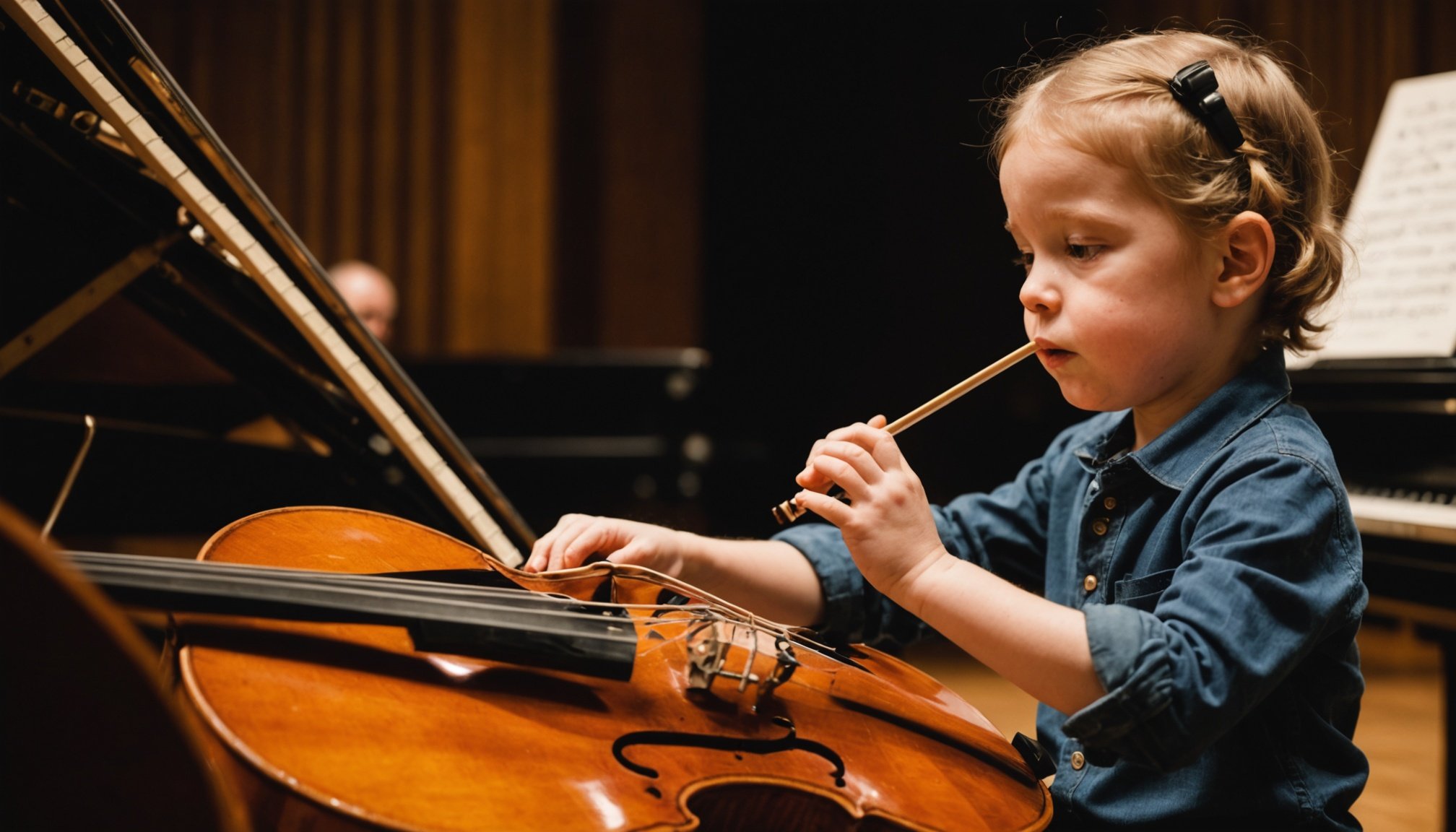Overview of Prenatal Classical Music Studies
The impact of prenatal exposure to classical music on cognitive development has been a topic of considerable interest. Various studies conducted in the UK have sought to unpack this phenomenon. Research methodologies vary, but frequently involve monitoring pregnant participants exposed to classical music, such as works by Mozart, followed by assessments of their children’s cognitive skills post-birth.
Key studies generally employ control groups to compare results, enhancing the reliability of their findings. These investigations often utilise a combination of quantitative and qualitative data to offer a comprehensive picture. The research primarily focuses on the potential changes in cognitive growth attributed to music exposure.
Also to see : Transforming maternal health: a deep dive into the uk”s nutritional education strategies for expecting mothers
Collectively, the findings suggest that exposure to classical music in the prenatal stage can contribute positively to early cognitive development. Evidence points toward improvements in skills such as memory, spatial-temporal reasoning, and language acquisition. However, it is important to note that the extent of these benefits can vary based on several factors, including the frequency and duration of music exposure and individual differences among subjects. Nonetheless, the overall body of research supports a potential correlation between prenatal classical music exposure and enhanced cognitive abilities in infants.
Cognitive Development Mechanisms
Understanding how prenatal classical music impacts cognitive growth begins with exploring the brain’s development. Prenatal exposure to classical music might engage neural pathways that are crucial for cognitive development. During the prenatal phase, the brain experiences rapid growth, and music exposure could play a role in this process.
Also read : Pregnancy safety first: a guide to uk regulations for cosmetic treatments
One theory posits that music exposure stimulates neural plasticity, which is the brain’s ability to form and reorganise synaptic connections. This plasticity is vital during prenatal development as the brain establishes foundational pathways that support cognitive functions.
Research indicates that cognitive skills like spatial-temporal reasoning, associated with solving puzzles and complex tasks, could be strengthened through early music exposure. These abilities align closely with the parts of the brain that interpret and process sound, suggesting a symbiotic relationship between music exposure and neural development.
Another area positively influenced is memory formation. Classical music exposure may enhance memory-related functions, aiding in the retention and recall of information. By influencing neural pathways specifically linked to memory, prenatal music exposure potentially sets a robust foundation for future learning capabilities. This combination of music and neural development underscores the intricate link between exposure and cognitive advancement.
Implications for Child Development
The impact of prenatal exposure to classical music on child development extends beyond infancy, suggesting tangible benefits in cognitive and learning outcomes. These findings highlight the importance of considering early intervention strategies that integrate music exposure. It is believed that starting interventions during the prenatal stage can set a strong foundation for future cognitive abilities.
Educators and healthcare practitioners can employ these insights to devise programmes that incorporate music into early childhood education. For instance, including music-related activities in early curricula may enhance children’s engagement and cognitive skills, particularly in areas such as language and memory.
Moreover, the connection between prenatal music exposure and improved learning outcomes offers compelling evidence for parents to consider integrating music into daily prenatal routines. This can include listening to classical music as a means of potentially boosting cognitive development outcomes in the long-term for their children.
While these interventions and practices are geared toward optimising child development, it is important to acknowledge varied responses to music exposure. Nonetheless, such findings underline the significance of nurturing cognitive growth right from the prenatal stage, fostering a conducive environment for enhanced learning capabilities as they grow.
Expert Perspectives
Gaining insights from expert opinions enriches our understanding of prenatal classical music’s potential impact. Psychologists often highlight the role of early neural stimulation in fostering cognitive development. They generally agree that music can facilitate brain connectivity, crucial for later cognitive skills. Neuroscientists add that music exposure might promote brain plasticity, positively influencing how neural pathways form and function. Such interdisciplinary views lend weight to the benefits observed in studies.
Contrasting perspectives do exist. Some experts caution against overestimating music’s impact, arguing that while beneficial, it may not be solely responsible for enhanced cognitive growth. Instead, they suggest that prenatal music exposure should be part of a broader set of stimulating experiences.
Academic insights commonly endorse the implementation of music in prenatal settings. Recommendations often encourage integrating music into daily routines, positing that consistent exposure potentially yields better outcomes. Experts propose strategies for parents and educators, such as creating playlists or attending music classes tailored for expectant mothers.
Ultimately, while there’s general agreement on music’s benefits, experts advise balancing expectations with practical applications. These academic insights help frame prenatal music as a tool within a wide array of developmental approaches.
Demographics of the Study Sample
Recent studies on prenatal exposure to classical music often emphasize the importance of participant diversity. Understanding who participates in these studies is crucial for interpreting results and ensuring they accurately reflect various populations. The demographics of study samples typically include a range of ethnicities, ages, and educational backgrounds. However, studies indicate that more research is needed to fully represent diverse populations, particularly those from different socio-economic backgrounds.
Socio-economic factors are among the most significant variables affecting study outcomes. Participants’ access to education and resources can influence their ability to integrate consistent music exposure into daily routines. This has implications for a study’s conclusions, as differences in cognitive development might be partly attributed to these external variables rather than music exposure alone.
The diverse demographics within study samples pose challenges and opportunities for researchers. On one hand, diversity helps validate findings across a broad spectrum. Conversely, it complicates data interpretation due to varying socio-economic factors. It’s essential for future studies to account for these variables, offering a more nuanced understanding of how prenatal music exposure might differ across diverse populations.
Practical Recommendations
Navigating the benefits of prenatal exposure to classical music, practical applications are essential for expectant parents and professionals. Guidance for parents includes regular incorporation of classical music, such as setting daily routines involving composers like Mozart to foster potential cognitive development.
Healthcare practitioners and educators can play pivotal roles by designing programmes that integrate music exposure into prenatal care. For instance, creating workshops or classes where expectant mothers can engage in music sessions is beneficial. These sessions can help parents understand the positive relationship between music exposure and cognitive growth, reinforcing consistent application at home.
Community programmes serve as an excellent platform to amplify these efforts. Establishing local initiatives that provide access to classical music resources can help reach diverse populations. Suggested formats include music classes, free concert tickets, or even community playlists that families can use during prenatal periods.
These strategies aim to facilitate music integration in everyday life, making it accessible for a broader audience and promoting a holistic approach to prenatal development. By actively engaging in these recommendations, parents and caregivers can enrich their prenatal experience, potentially enhancing early cognitive abilities in their future children.











